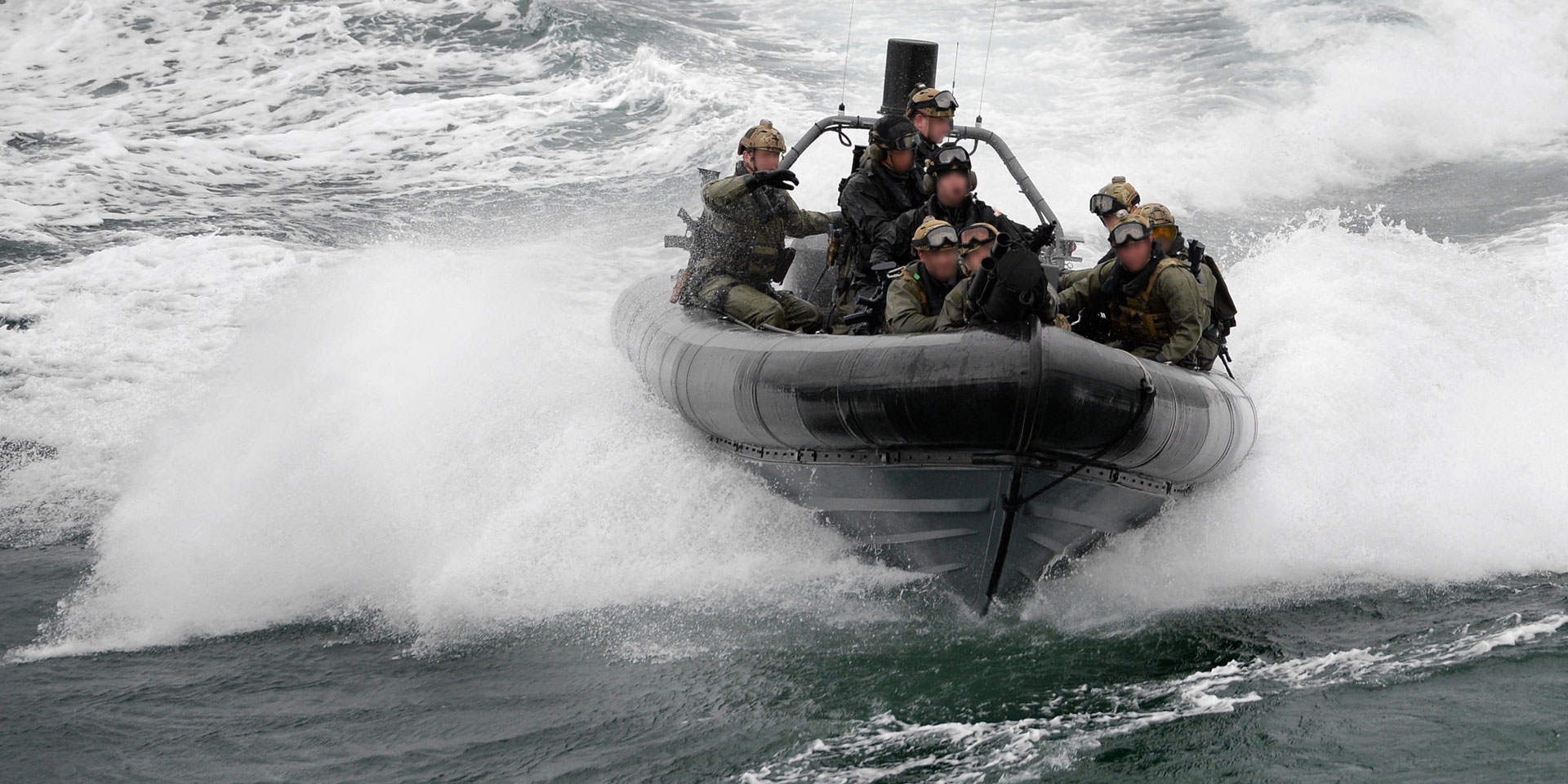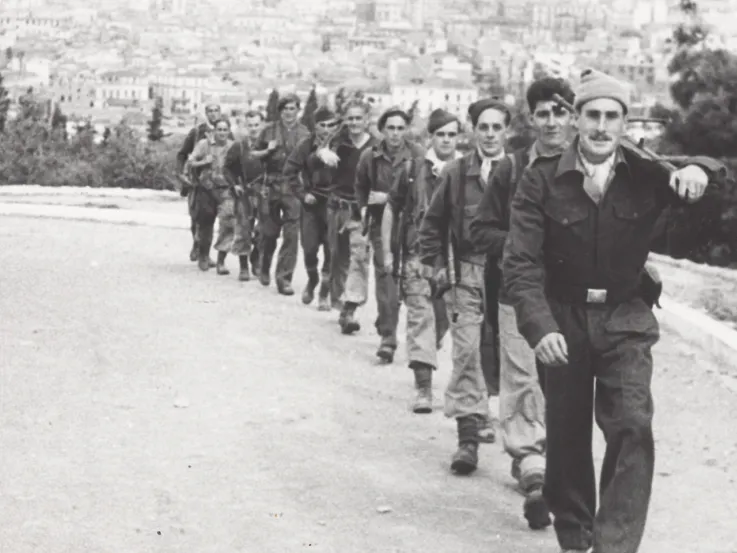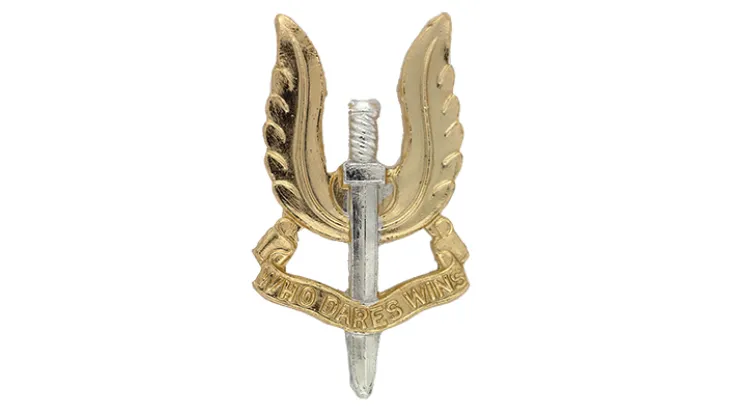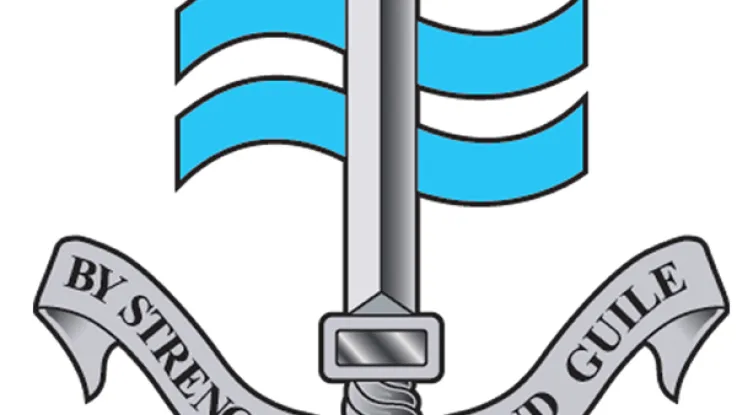
SAS troops entering the windows of the Iranian Embassy, 1980 (© Crown)
When were the Special Forces established?
Today’s Special Forces have their origins in the commando units created during the Second World War (1939-45). But most of these were disbanded in 1945, after the War Office concluded that they were no longer needed.
The subsequent growth of nationalist and communist insurgencies, against both British rule and Britain's allies, created a military context that sometimes required small specialist units instead of large regular forces. Accordingly, several Special Forces units were re-established.
As time went on, the various threats against British interests evolved. But these highly trained units adapted to meet the new challenges.
Special Forces today
The Special Forces currently consist of the Special Air Service (SAS), Special Boat Service (SBS), Special Reconnaissance Regiment and 18 (UKSF) Signals Regiment.
The various units' areas of expertise include behind-the-lines operations, undercover raids, counter-insurgency and counter-terrorism, hostage rescue, reconnaissance and covert surveillance.

Two SAS men engaging the enemy, Afghanistan, c2006 (© Crown)

An SAS team calling in fire support, Afghanistan, c2007 (© Crown)
They are assisted by the Joint Special Forces Aviation Wing, who specialise in covert battlefield insertion and extraction, and the Special Forces Support Group (SFSG).
The SFSG is made up of soldiers from 1st Battalion The Parachute Regiment, along with troops from the Royal Marines and the Royal Air Force Regiment. It serves as a quick-reaction force to assist Special Forces missions. This might include large supporting offensives, blocking enemy counter-attacks or guarding areas of operation.
All of these units are overseen by a Director supported by a specialist staff.
How do the Special Forces recruit?
Special Forces personnel are recruited from across the three branches of the armed services, but mainly from the Army and Royal Marines. Most applicants will have completed several years' service with their current unit.
Recruits come from across the United Kingdom, Ireland, Nepal and the Commonwealth, and include both regular soldiers and reservists. Although most are men, women serve in some Special Forces units fulfilling the same roles as their male comrades.

A Special Boat Service Rigid Inflatable Boat, c2010 (© Crown)
Making the cut
The Special Forces are highly selective. Applicants have to pass extreme physical and psychological tests. Only a small percentage make the cut.
The selection process includes a series of five timed marches across the Brecon Beacons, swimming while wearing kit, a jungle survival course, and tests on evading capture and resisting interrogation. Determination, endurance, adaptability, and intelligence are just some of the characteristics that instructors look out for.
Once inducted into their units, Special Forces soldiers undertake a process of continuous training to keep up the elite standards required for them to meet challenges that they will face in the field.

Special Forces selection training, Brecon Beacons, 1970s (© Crown)

SAS troops deploying by helicopter, Afghanistan, c2006 (© Crown)
Quiz
What percentage of Special Forces candidates pass selection?
British Special Forces selection is widely considered to be one of the hardest in the world. The SAS and SBS hold two selection courses a year with 150-200 candidates in each.
Expectations
Physical ability is essential, but it is not enough. Teamwork and creativity are just as important. To conduct a successful mission, Special Forces troops may be required to deliver medical care, communicate in foreign languages, or make precise navigational calculations.
As a result, there is no typical Special Forces soldier. Each person holds a unique combination of qualities and capabilities, and this helps to form an effective team. Sometimes the people who possess the required characteristics are not the obvious candidates.








